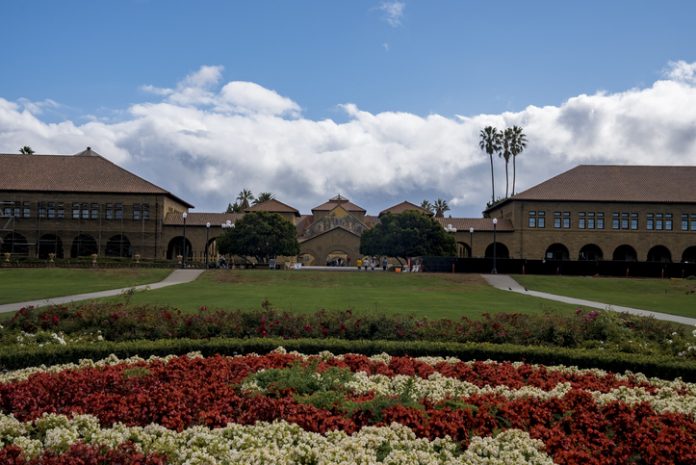By Jay Bhattacharya, M.D.
Three epidemiologists, the eminent Sunetra Gupta of the University of Oxford and Martin Kulldorff of Harvard University, and I wrote the Great Barrington Declaration (GBD) on October 4, 2020.
That one-page document proposed a very different way to manage the COVID-19 pandemic than had been used up to that date. The lockdown-focused strategy much of the world followed mimicked the approach Chinese authorities adopted in January 2020.
Governments imposed lockdowns on the premise that there was nearly unanimous scientific consensus in support of them. Yet, an extraordinary policy like a lockdown should require an extraordinary scientific justification. Only near unanimity among scientists, backed by solid empirical data, suffices.
We wrote the GBD to tell the public there was no scientific unanimity about the lockdown. Instead, the GBD proposed a focused strategy to protect the elderly and other vulnerable populations.
Collins/Fauci Take-Down
Four days after we wrote the GBD, Francis Collins, a geneticist and laboratory scientist who headed the National Institutes of Health, wrote to Anthony Fauci, an immunologist and lab scientist who headed the National Institute of Allergy and Infectious Diseases until the end of 2022, calling us “fringe epidemiologists” who needed a devastating public takedown.
At the NIH, Collins and Fauci sat atop tens of billions of dollars that fund the work of nearly every biomedical scientist of note in the United States.
I work at Stanford University, which receives hundreds of millions of dollars from the NIH, without which researchers would not have the resources to conduct many worthwhile experiments and studies. NIH funding also confers prestige and status within the scientific community. At Stanford, it is very difficult for a biomedical researcher to earn tenure without landing a major NIH grant.
The attacks by Collins and Fauci sent a clear signal to other scientists that the GBD was a heretical document.
Stanford Attacks
If you had asked me in March 2020 whether Stanford had an academic freedom problem in medicine or the sciences, I would have scoffed at the idea. Stanford’s motto (in German) is “the winds of freedom blow,” and I would have told you at the time that Stanford lives up to that motto. I was naive then, but not now.
The most egregious violation of academic freedom was an implicit decision by the university to de-platform me. Although I have given dozens of talks in seminars at Stanford over decades, in December 2020 my department chair blocked an attempt to organize a seminar where I would publicly present the ideas of the GBD.
Stanford’s former President John Hennessey tried to set up a discussion between me and others on COVID policy, but he was unable to, owing to the absence of support from the university.
I was not the only one to suffer. Stanford de-platformed other lockdown-skeptic academics, including John Ioannidis, one of the world’s most highly cited scientists and the most prolific and influential Stanford faculty on peer-reviewed COVID-19 publications; Michael Levitt, a Nobel Prize winner who made fundamental original contributions to modeling; and Scott Atlas, a former chair of neuroradiology at Stanford, widely acknowledged health policy expert and a key adviser to former President Donald Trump on COVID policy.
‘Slander, Threats, Abuse’
The university’s refusal to defend dissenting voices created an environment in which slander, threats, and abuse aimed at lockdown critics could flourish. In August 2020, when President Trump chose Atlas as a White House adviser on the pandemic, around 100 Stanford faculty members signed an open letter accusing him of “falsehoods and misrepresentations,” without giving any specific examples
In August 2021, Melissa Bondy, chair of epidemiology at Stanford, helped circulate a secret petition around the medical school asking the university president to censor me for accurate testimony I gave Florida Gov. Ron DeSantis at a publicly televised policy roundtable.
I testified that no randomized trials yet demonstrate the efficacy of masks on children to contain COVID. Although the secret petition did not name me specifically, it quoted me and asked the university to suppress such speech by faculty members. This petition imposed unethical pressure on faculty members—especially junior faculty members worried about tenure votes—to sign on.
‘Protected the Vulnerable’
An anonymous group on campus organized a campaign to intimidate me in response to a tweet by DeSantis, which included a picture of me from the policy roundtable and an (accurate) quote: “By vaccinating the old, we have protected the vulnerable.”
The group glued posters all over campus with a picture of my face, the tweet from DeSantis, and a graph of COVID cases in Florida, which at the time were high. (Florida’s age-adjusted COVID mortality throughout the pandemic is lower than the average American state and on a par with California’s.) The implication was that I was a thought criminal whose work was somehow responsible for the inevitable spread of a highly infectious respiratory virus.
On a progressive-dominated campus, these posters were clearly an incitement to violence. The group placed them on kiosks all over campus, including near a campus coffee shop I frequent.
Academic Freedom for ‘Edge Cases’
Faculty at Stanford should rightly worry whether their professional work will lead to de-platforming, ex-communication, and political targeting.
Academic freedom matters most in the edge cases when a faculty member or student is pursuing an idea that others at the university find inconvenient or objectionable. If Stanford cannot protect academic freedom in these cases, it cannot protect academic freedom at all.
Jay Bhattacharya, M.D., Ph.D. (jay@stanford.edu) is a professor of health policy at Stanford University. A version of this article appeared on Tablet on January 11, 2023. Reprinted with permission.
See related article, Restore Open Dialogue in Science, Says Great Barrington Declaration Co-author





















